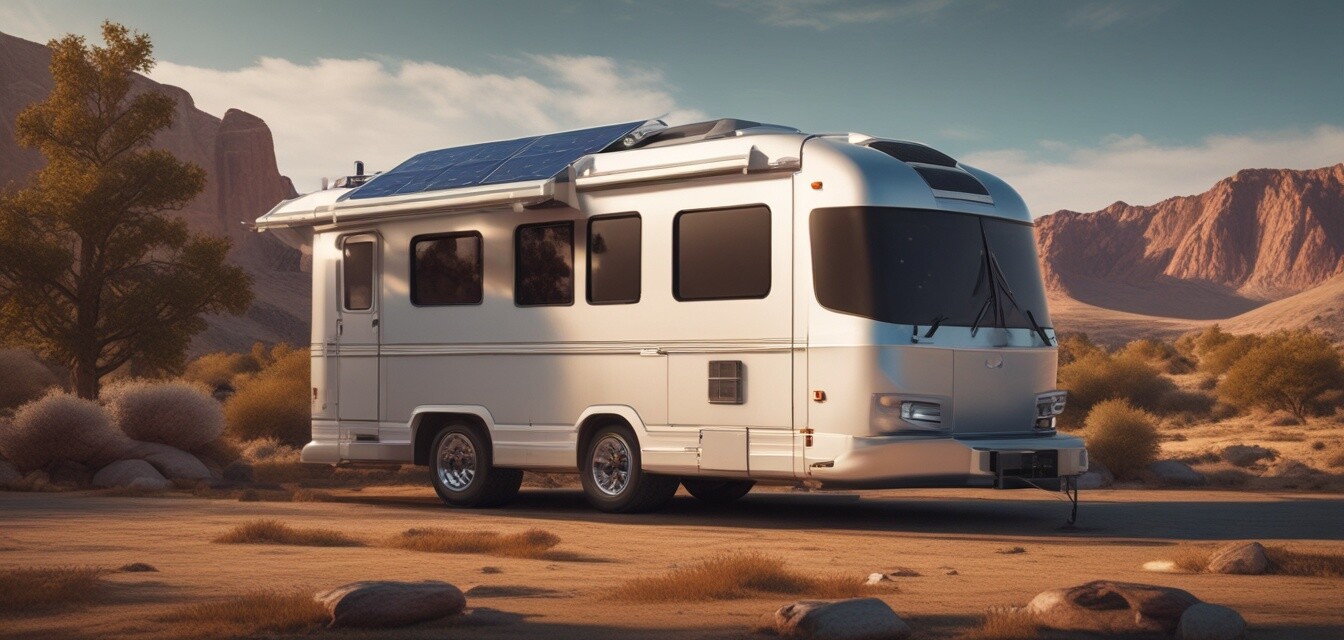
The Future of Off-Grid RV Travel: Solar Innovations
Key Takeaways
- Off-grid RV travel is becoming increasingly feasible with solar innovations.
- Integration of high-efficiency solar panels is essential for energy independence.
- Advanced battery systems enhance energy storage for extended trips.
- Emerging technologies are reshaping the landscape of RV energy solutions.
- Solar chargers and controllers play a crucial role in optimizing solar energy usage.
The RV industry is witnessing a transformation with the adoption of solar innovations, paving the way for an energizing off-grid travel experience. RV enthusiasts increasingly seek sustainability and energy independence, resulting in the integration of advanced solar technology into their mobile homes. This article explores cutting-edge solar solutions that are setting the stage for the future of off-grid RV travel.
Why choose solar for RV travel?
Solar power presents numerous benefits for RV travelers, such as:
- Environmental sustainability: Solar energy reduces reliance on fossil fuels.
- Cost savings: Once installed, solar panels can significantly reduce energy costs.
- Energy independence: Use solar power for lighting, appliances, and more, reducing dependence on campgrounds.
- Increase in travel flexibility: Enjoy the freedom to travel to remote locations.
Latest solar technologies for RVs
As technology advances, several key innovations are revolutionizing the solar landscape for RV users:
| Innovation | Description | Benefits |
|---|---|---|
| Flexible solar panels | Thin, lightweight panels that can be installed on curved surfaces. | Improved aesthetics and installation versatility. |
| High-efficiency solar cells | Advanced cells that convert more sunlight into energy. | Greater energy output with less space needed. |
| Bifacial solar panels | Panels that can capture sunlight from both sides. | Increased energy generation from ambient light and reflections. |
| Solar battery storage | Advanced batteries that store energy efficiently for nighttime use. | Allows for extended off-grid living experiences. |
| Smart solar chargers | Controllers that optimize the performance of solar systems. | Efficient charging and energy management. |
Innovative battery systems for RVs
To maximize the benefits of solar energy, a reliable battery system is crucial. Here’s a look at the latest trends in RV battery technology:
- Lithium-ion batteries: Lightweight and powerful, offering faster charging and longer lifespan.
- AGM batteries: Valve-regulated lead-acid batteries that are maintenance-free and safe.
- LiFePO4 technology: A safe and stable lithium technology ideal for energy storage.
Integrating solar systems into your RV
For a seamless solar experience, consider these essential components designed to work together:
- Solar chargers and controllers to manage energy inputs.
- Efficient battery systems for reliable storage.
- Mounting kits for optimal panel positioning.
- Inverters to convert stored energy into usable power.
Future trends in RV solar technology
As the solar industry evolves, several trends are emerging that can shape the future of RV travel:
- Increased solar panel efficiency: Predictions suggest ongoing improvements in energy conversion efficiency.
- Smart home integration: Future RVs are likely to feature more integrated smart technology.
- Enhanced portability: Look for even more portable solar options catering to RV owners.
- Regulatory support: Ongoing policy changes may encourage solar adoption in the RV sector.
Conclusion
The future of off-grid RV travel seems bright, thanks to continually evolving solar innovations. With an increasing focus on sustainability and energy independence, RV owners are in a prime position to take advantage of these advancements. As new technologies emerge, they are set to reshape how we experience the great outdoors.
Pros
- Enhances travel freedom and flexibility.
- Reduces carbon footprint.
- Offers substantial cost savings over time.
- Improves overall RV livability.
Cons
- Initial investment can be high.
- Requires maintenance and system checks.
- Weather can affect energy production.
For more information on the latest trends in RV solar power, check out our News & Trends section for the latest updates.